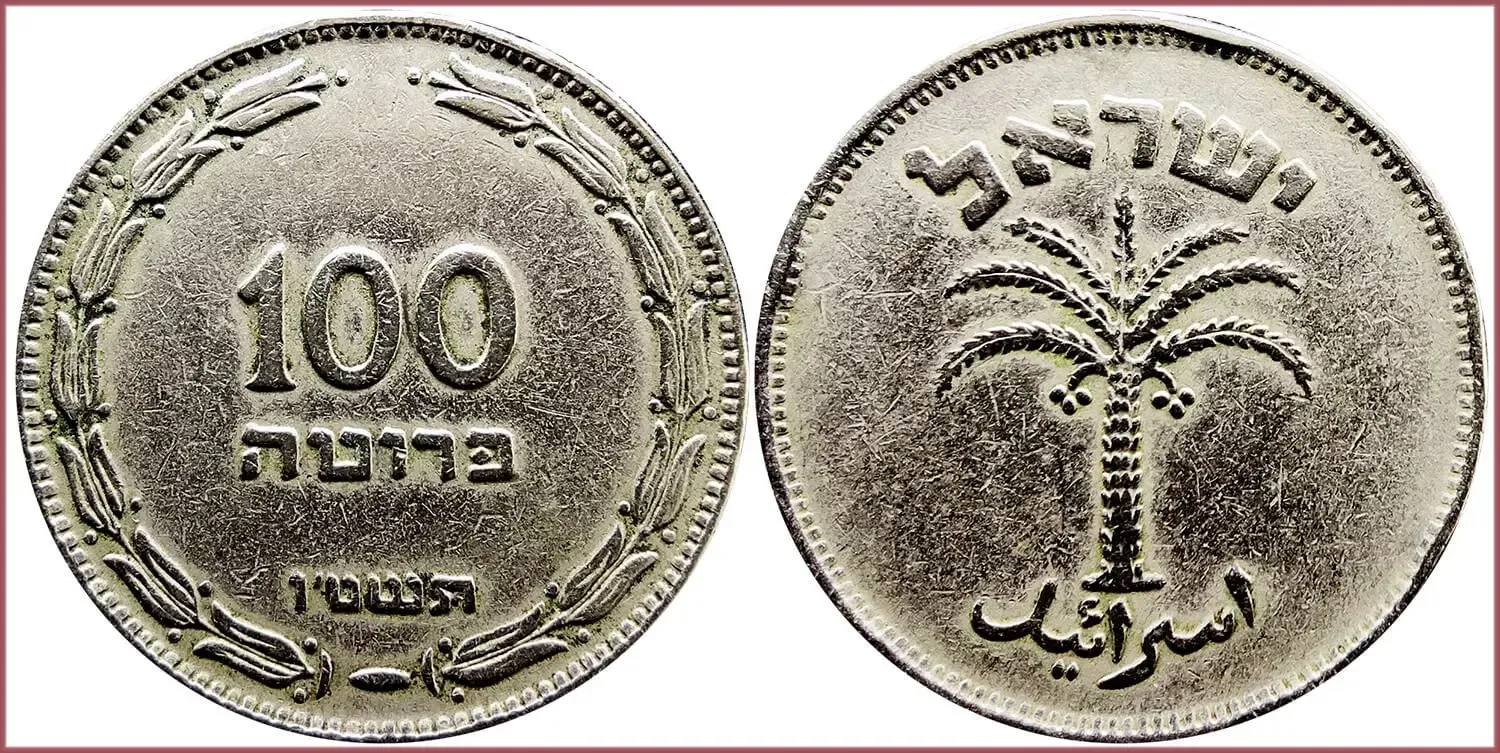PRUTA: COIN OF ISRAEL
100 pruta, 1955: State of Israel
Date on coin: תשט"ו — JE 5715 (JE: "Jewish calendar" — also called Hebrew calendar) = 1955 (Gregorian calendar).
The digital designations of the denomination of the coin and the date are marked in a combined format — both Hindu-Arabic numerals (denomination) and Hebrew numerals (date).
100 פרוטה: pruta, 100.
תשט"ו: date by Hebrew calendar — 5715.
Stylized wreath of olive branches.
ישראל - اسرائيل: name of the state of Israel in Arabic and Hebrew.
Date palm tree (Latin "Phoenix dactylifera") with 7 branches (the tree was heavily cultivated as a food source in ancient Israel where Judaism and subsequently Christianity developed; date palm leaves are used for Palm Sunday in the Christian religion).
Israel Mint (Tel Aviv, Israel).
Mintage: 5.867.674.
- Copper-nickel: 28 mm - 11.26 g
- Reference price: 1.7$
COIN PRUTA — WHERE & WHEN (coins catalog: by names & emitents)
- STATE OF ISRAEL (1949-1957): pruta = 1/1000 pound or lira
PRUTA as coin name.
Pruta (plural: prutot) — exchange coin of Israel minted during 1949-1957. It was 1/1000 of the Israeli lira.
Pruto replaced the Israeli mil, which during the first year of the state's existence served as small coins of the temporarily used Palestinian pound.
In 1949, two series of coins of this denomination were issued. Initially, these were silver 250 and 500 pruta (non-circulating coins). Formally, they can be considered exchange coins of the still temporary Palestinian pound. Also dated 1949 is a series of aluminum, bronze and copper-nickel pruta, which a little later became exchange coins of the newly introduced Israeli lira (another name: pound).
In 1960, pruta was replaced by agora.
The most likely version is that the name pruta comes from the ancient Aramaic language and means "smallest coin" or "coin of the smallest denomination".
Interestingly, small copper and bronze coins in the Middle East had a similar name even before our era. However, according to numismatic catalogs, that denomination is correctly written in English as prutah.











